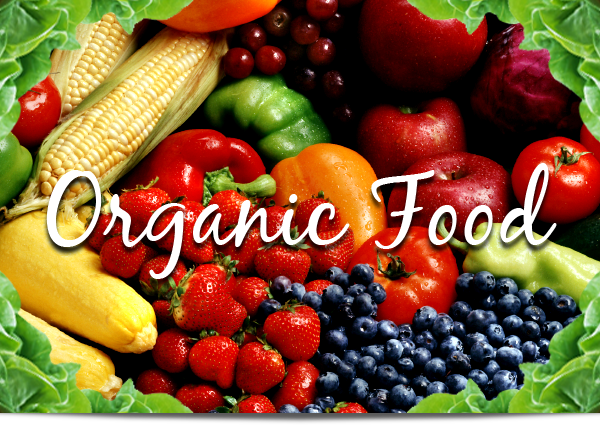ORGANIC FOOD
July 20, 2022 2023-09-18 21:22ORGANIC FOOD
You are what you eat. This is a true saying that links your food consumption to your health.
When I first decided to make a lifestyle change, I received numerous recommendations, some relating to my age, others to my weight, and still others for the prevention of age-related ailments. All I wanted was to stay healthy so that I wouldn’t become a burden to my children in my old age. Among the suggestions was that I eat more fruits and vegetables, preferably organic ones. Now, the latter part of the advice presented some difficulties for me because I do not own a farm. How do I tell if something is organic?
“Organic food, ecological food or biological food are food and drinks produced by methods complying with the standards of organic farming. Standards vary worldwide, but organic farming features practices that cycle resources, promote ecological balance, and conserve biodiversity. Organizations regulating organic products may restrict the use of certain pesticides and fertilizers in the farming methods used to produce such products. Organic foods typically are not processed using irradiation, industrial solvents, or synthetic food additives.”- Wikipedia
Organic produce has the following characteristics:
- Organic foods are grown with natural fertilizers, as opposed to inorganic foods, which are grown with chemical and synthetic fertilizers. When chemicals and synthetic fertilizers are used to grow produce, some residues remain in the produce after harvesting, which may be consumed and cause one or more ailments.
- Pest control is done with natural pesticides during organic product farming. Chemical pesticides are used to control pests in non-organic produce, and some of these pesticides are transferred to the produce.
- Organic produce is weeded by hand, whereas non-organic produce is weeded with herbicides. The manual weeding process ensures that no chemicals are transferred to the harvested produce.
- Organic livestock feeds are GMO (Genetically Modified Organisms) and hormone-free, whereas inorganic livestock feeds contain chemicals to aid growth, making it unsafe for human consumption. Animals are more likely to contract diseases when fed chemically induced feeds or animal bye products.
- Organic livestock use hygienic environments, healthy feeds, and rotational grazing to prevent disease, whereas inorganic livestock use antibiotics and other medication, and when animals are treated with antibiotics, they tend to develop antibiotic-resistant disease over time.
- Organic livestock are permitted to graze outside, whereas inorganic livestock is normally confined and may not be permitted to graze outside. Allowing animals enough space to move around keeps them healthy.
- Organic foods are typically fresher, though they have a shorter shelf life, particularly perishables like fruits and vegetables, due to the absence of chemical preservatives in such produce.
Organic farming is good for the environment because it reduces pollution, improves soil fertility, poses no health risks to people and animals living near farms, and reduces soil erosion. The produce obtained through the Organic farming method has been found to be more healthy, owing to the fact that the product is in its natural state, having not been tempered by the introduction of chemicals or having their genes altered by the GMO (Genetically Modified Organisms) and GE (genetically Engineered) farming methods.
The efforts and resources put into producing organic products cannot be compared to those put into producing inorganic produce. Inorganic farmers produce on a large scale, which is why they require chemicals to aid their fast production in order to meet demand. A six-month-old organic chicken, for example, cannot be compared in size and weight to an inorganic chicken because the inorganic chicken has been fed feeds that will cause it to grow large in a few months and aid in egg production.
Because of the above, organic products are typically expensive and, to some extent, scarce. If you want to save money while still buying organic produce, consider the following:
– Go to your local markets. On most occasions, farmers will arrange to take their produce to a pre-arranged market on certain days of the week; these markets are usually in the open air, where they will sell their freshly harvested produce; you can be certain to buy organic produce from such environments. So learn about the various market days for various products in your area.
– There are different types of products for different seasons; make sure to buy produce that is in season. You can also buy such products in bulk and keep it with you for when it is no longer in season. However, not all products can be handled in this manner. A good example of what I do is buy fresh tomatoes in bulk during their season, enough to last me until the next season, blend them, boil and freeze them, and use them gradually until the next season.
– You might want to join a food cooperative, where organic food is purchased in bulk and shared among members. Buying in bulk almost always equals buying at a lower cost and buying directly from the source, a local farm. The sources, in this case, are local farmers chosen by the cooperative.
– Compare organic produce prices at the store, online, and at the farmer’s market, but don’t be fooled; some produce at the store may appear cheaper but be low-quality organic produce, or they may simply be labeled organic; read produce content to determine the level of preservative they contain. Remember, if it seems too good to be true, it probably is.
If you are having second thoughts about eating organic food right now, consider the following saying:
“Organic is something we can all partake of and benefit from. When we demand organic, we are demanding poison-free food. We are demanding clean air. We are demanding pure, fresh water. We are demanding soil that is free to do its job and seeds that are free of toxins. We are demanding that our children be protected from harm. We all need to bite the bullet and do what needs to be done—buy organic whenever we can, insist on organic, fight for organic and work to make it the norm. We must make organic the conventional choice and not the exception available only to the rich and educated.” – Maria Rodale
Sources
https://www.helpguide.org/articles/healthy-eating/organic-foods.htm
 |
Author : Amiakhor Beatrice Ejaeta |
























